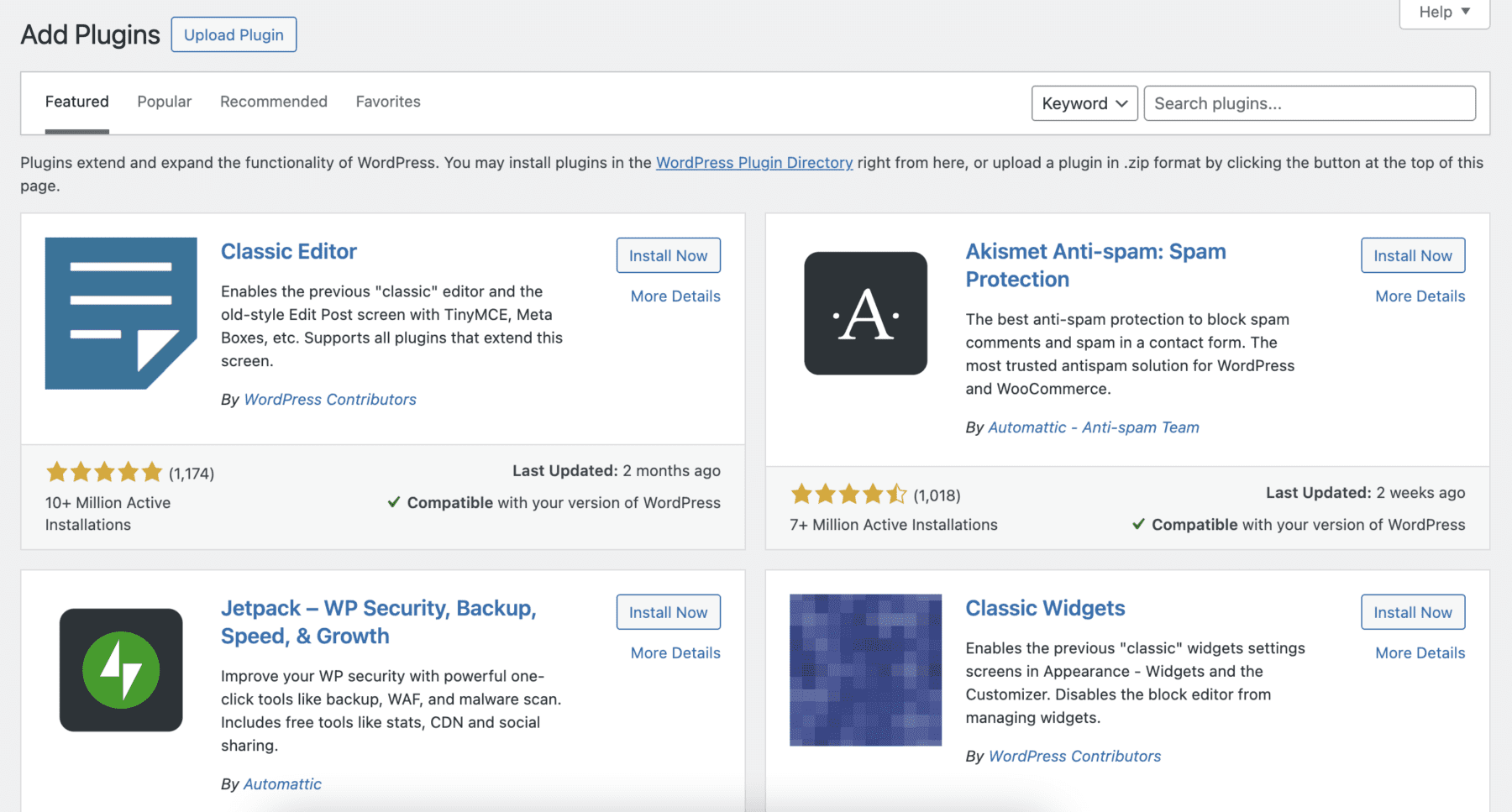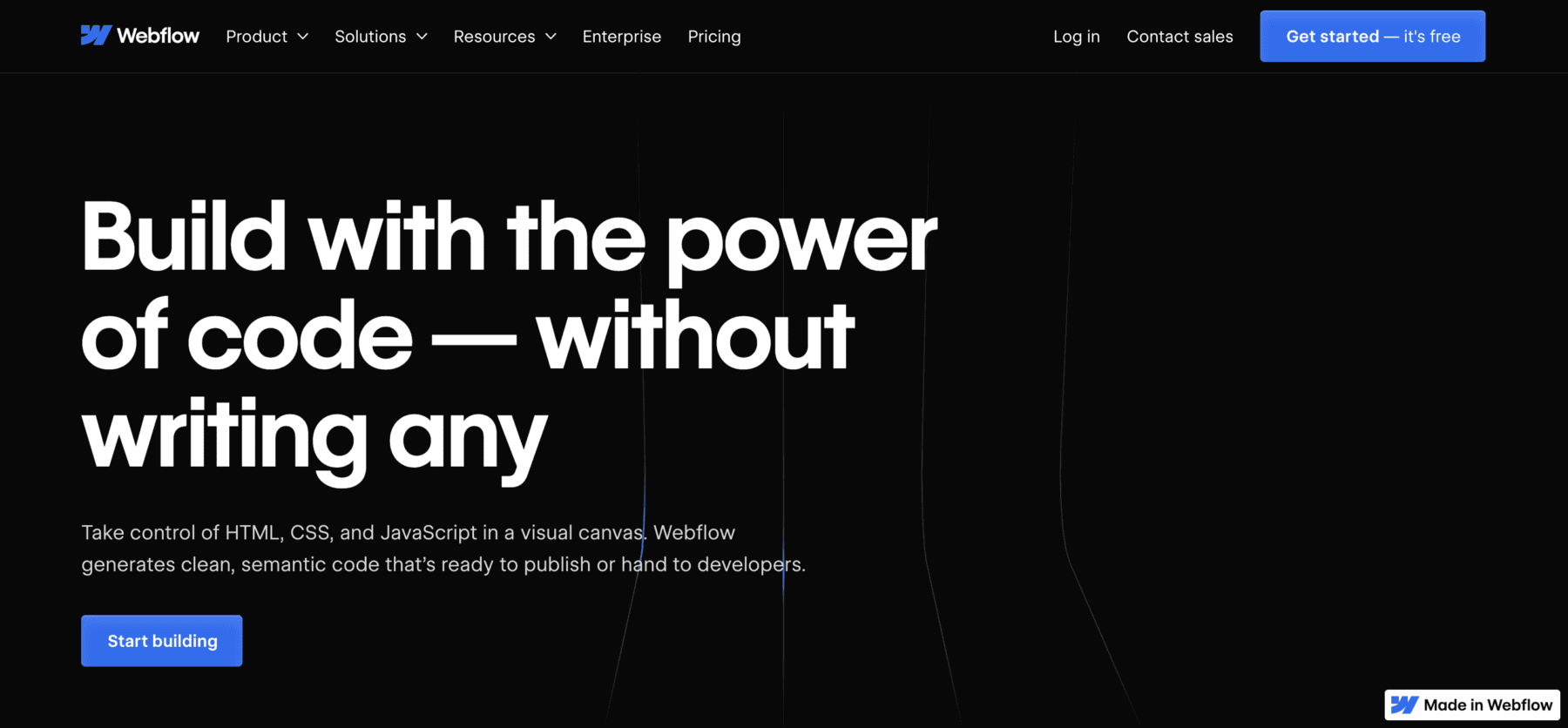Thinking about launching a website for your small business but feeling overwhelmed by the options? You’re not alone. One platform that often pops up is WordPress, and for good reason. It’s user-friendly, highly customizable, and can fit a variety of business needs.
But is WordPress really the right choice for your small business?
Let’s dive into why so many small businesses swear by it and see if it aligns with your goals.
What Do Small Businesses Really Need in a Website?
There are so many options for small businesses when it comes to websites. From entirely custom builds to drag and drop template sites – where do you start? Let’s start by outlining what a small business really needs when it comes to website design.
Simplicity
You should prioritize a straightforward design and easy navigation. Visitors need to find information quickly without distractions. WordPress offers a range of clean, professional themes.
Flexibility
A website should adapt to your business’s changing needs. WordPress excels here with thousands of plugins (e.g., SEO tools, social media integrations) that allow you to add new features as your business evolves.
Scalability
Your site should be able to grow as your business expands. WordPress’s scalable infrastructure supports this, with plenty of options as you grow.
Hands-off Maintenance
Running a business leaves little time for managing a website. WordPress simplifies maintenance with automatic updates for themes and plugins. Hosting providers often offer managed WordPress services, reducing your workload further.
Affordable Pricing
Budget is a key concern for small businesses. WordPress is cost-effective, with many free or low-cost themes and plugins. Basic hosting plans start around $3-$10 per month. And you’ll typically be looking at a few thousand dollars to have someone do it for you, compared to $20k for something more custom.
Informational Focus
For businesses needing an informational site, WordPress provides numerous templates suited for presenting essential details without unnecessary complexity. You avoid spending excessively, especially when your website’s primary role is to inform clients rather than drive sales.
Minimal Ongoing Costs
WordPress reduces long-term expenses. While initial setup costs vary, regular maintenance and updates are more affordable when compared to custom-built websites. Most themes and plugins receive periodic updates, ensuring your site remains secure and functional.
By focusing on these needs, you can ensure your website supports your business effectively without overspending on unnecessary features.
The Pros of WordPress
Before we dive into what makes WordPress great, it’s important to note there’s a difference between the WordPress framework (wordpress.org) and the WordPress blogging platform (wordpress.com). The former is simply a framework for building websites. WordPress.com is a place anyone can setup an account and launch a free blog.
It’s Simpler (and Cheaper) Than Custom
WordPress offers an affordable and user-friendly alternative to custom-designed websites. You can find numerous frameworks and tools that make designing on WordPress straightforward. Unlike custom sites that require extensive development time, WordPress uses pre-built themes and plugins, significantly reducing setup time and costs.
Pre-built themes start as low as $30, while custom designs can cost thousands. WordPress also has free options available, making it possible to build a professional site without a significant investment. Plus, maintenance is easier with automatic updates and support readily available.
It’s Flexible
WordPress’s flexibility stands out, accommodating the varying needs of small businesses. Initially, you may not require a robust site, but as your business grows, you need a platform that can scale with you. WordPress supports this scalability through its vast array of plugins and themes.
Small business owners can choose from over 58,000 plugins to add features as needed. From eCommerce functionality to event management, WordPress offers the tools to expand your site in alignment with your business growth. Your site evolves without requiring a complete overhaul.
Strong Community And Resources
WordPress benefits from a large, active community, providing comprehensive resources and support. When building or maintaining your site, you can rely on this community for help, guidance, and troubleshooting.
You’ll find countless forums, tutorials, and documentation to assist with all aspects of WordPress. For example, the WordPress Codex and WPBeginner offer detailed guides. If issues arise, you can typically find answers or solutions quickly, ensuring your business site remains functional and up-to-date.
Downsides of WordPress
There’s a lot to like about WordPress. But it’s not the perfect fit for everyone.
Not as Easy as Other Visual Builders
WordPress, despite its ease compared to custom sites, isn’t as user-friendly as other visual builders. Platforms like Webflow, Squarespace, and Wix offer drag-and-drop interfaces that simplify website creation. These builders often come with built-in hosting and require less technical knowledge. For users who prefer a straightforward design process, these alternatives might be preferable.
Requires Some Maintenance
WordPress demands regular maintenance to stay functional and secure. You need to set up and manage your own server. Core software updates, plugin updates, and theme updates are necessary to keep your site running smoothly. Neglecting these tasks can result in security vulnerabilities and performance issues. Therefore, consider the ongoing responsibility for maintaining your WordPress site.
What Alternatives Are Out There?
Webflow
Webflow offers a robust platform if you want a quick and easy website build. You can use its visual drag-and-drop editor, making it a popular choice for designers. If you handle the build yourself, the monthly cost is about $20, which can save you substantial money. Webflow provides flexibility with its custom coding options, allowing deeper customization compared to other simple builders. It also includes hosting, which simplifies the entire process.
Squarespace
Squarespace ranks as a favorite for many due to its ease of use, slightly edging out competitors like Wix and Weebly. Its user-friendly interface attracts those with no coding experience. You can access a variety of professional templates, enabling you to create a sleek, modern website quickly. Squarespace includes features like built-in e-commerce and SEO tools, making it an all-in-one solution for small businesses looking to grow without getting bogged down by technical details.
Wix
Wix has expanded significantly in recent years, adding numerous features to cater to diverse business needs. Its drag-and-drop interface simplifies website creation, making it accessible even for beginners. Wix offers hundreds of templates and a vast app market to extend functionality. These apps cover areas like online booking, email marketing, and customer management, providing a comprehensive suite of tools to manage your business online effectively.
A More Custom Site
Opting for a fully custom site gives you control over every aspect of your website’s design and functionality. However, this option often doesn’t make sense for small businesses due to higher costs and longer development times. Custom sites require extensive coding knowledge or hiring developers, which can become expensive. For many small businesses, platforms like WordPress, Webflow, and Squarespace offer enough customization and flexibility to meet their needs without the steep investment a custom site demands.
Your Small Business Has Options, but WordPress Still a Great Choice
When it comes to choosing a platform for your small business website you’ve got plenty of options. WordPress stands out with its user-friendly customization scalability and cost-effectiveness. While alternatives like Webflow Squarespace and Wix offer unique features and ease of use WordPress remains a solid choice for many.
It’s all about finding what fits your business needs best. Whether you go with WordPress or another platform make sure it aligns with your goals and budget. No matter what you choose your small business can thrive online with the right tools in place.




